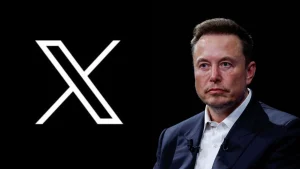In a significant reversal, Elon Musk’s Starlink bows to Brazilian court orders, agreeing to block access to X after a legal standoff.

The conflict escalated last week when Supreme Court Justice Alexandre de Moraes ordered a nationwide ban on X, after the platform failed to appoint a legal representative in Brazil, as required under the country’s civil code. The ban came amid rising tensions between Musk and Brazilian authorities over X’s refusal to comply with court directives to remove accounts linked to far-right groups.
Starlink, a key provider of internet access to remote regions of Brazil, particularly the Amazon rainforest, had initially called the court’s demand “illegal.” However, after Moraes froze Starlink’s bank accounts in Brazil, accusing the company of acting as part of a “de facto economic unit” with X, the company faced the possibility of losing its operating license.
Facing increasing pressure, Starlink shifted its stance on Tuesday, announcing that it would comply with the order to block access to X. In a statement posted on X, the company criticized the asset freeze but said it would nonetheless follow the court’s ruling to maintain its presence in Brazil.
While Starlink’s user base in Brazil is modest, with around 225,000 customers, the service is vital for isolated communities in the Amazon and the agricultural heartlands, where traditional internet access is limited. Starlink’s low-orbit satellite network, consisting of over 6,000 satellites, provides high-speed internet connectivity to previously underserved areas, solidifying its role in the country.
The dispute between Musk and Brazil’s judiciary has sparked political debate. Right-wing figures have condemned Justice Moraes’ actions, accusing him of authoritarianism and threatening civil liberties. In contrast, left-wing politicians, including President Luiz Inácio Lula da Silva, have defended the court’s decision, framing it as a defense of national sovereignty.
“The Brazilian justice system has sent a clear message that even powerful figures like Musk must respect our laws,” President Lula stated, reflecting the broader political divide over the incident.
As Starlink navigates the legal landscape in Brazil, the broader implications for Musk’s businesses in the country remain uncertain. However, the resolution marks a significant moment in the ongoing power struggle between global tech giants and national governments over digital sovereignty and regulation.
(Associated Medias) – Tutti i diritti sono riservati
